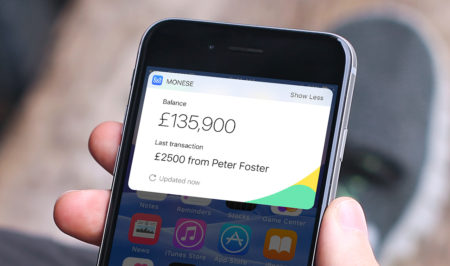Being self-employed means freedom and flexibility. But you don’t have access to valuable employer-sponsored benefits such as health or dental insurance. Employees are typically entitled to medical benefits and can even claim compensation with the help of a workers compensation claim lawyer should they encounter any injuries during the course of work. But being self-employed means you are covered on your own. Therefore, you need insurance for self-employed workers. But you need to make sure you go for the right type of insurance. For example, renters insurance doesn’t cover home-based businesses.
Understandably, you balk at having more monthly expenses. Your income varies month to month, but your bills don’t.
Insurance isn’t just a monthly expense. If you suffer an injury, severe illness or even loss of life, insurance financially protects you and your loved ones from potential disaster.
Imagine getting a bill for $5,000, $10,000 or even $50,000. Or being unable to work for several months. Or leaving your loved ones with no way to replace your income.
Insurance can help you avoid these scenarios.
Freelancers and contractors should strongly consider these three types of insurance for self-employed workers.
Health insurance for self-employed
Health insurance is one of the biggest differences between being an employee and a self-employed worker. Most companies pay a sizable share of their employees’ insurance premium. Self-employed workers are on their own.
However, it’s better today for freelancers than it used to be.
How to buy health insurance
The Affordable Care Act (ACA) provides reasonably priced health insurance for self-employed professionals through the Individual Health Insurance Marketplace.
When the ACA took effect in 2010, health insurance was mandatory for all individuals. That is no longer the case, as of 2019.
Regardless of whether it’s legally required, health insurance is important for self-employed workers. According to healthcare.gov, the average cost of fixing a broken leg without health insurance is $7,500. A three-day hospital stay can run $30,000.
You don’t want to know what uninsured people hospitalized for COVID-19 had to pay.
Not everybody can take advantage of the Individual Health Insurance Marketplace. Self-employed workers can only access it if they have no employees. This includes freelancers, consultants, and independent contractors.
If you have one or more employees, you will have to get health insurance through another option, such as the Small Business Health Options Program (SHOP), or a private insurer.
The federal government considers a worker an employee if you report their income on a W-2 form at the end of the year. You’re not considered an employer if you hire independent contractors to do some work.
One of the ACA’s advantages is that premiums are based largely on what you earn. You may qualify for tax credits and other savings based on your income and household size.
If you struggle to earn adequate income, you may qualify for free or low-cost coverage.
Plans offered through the marketplace can also cover pre-existing conditions.
Other options for self-employed health insurance
If the Individual Health Insurance Marketplace doesn’t meet your needs, there are other options.
Private health insurance
A number of private companies have created specific health insurance for self-employed policies. An independent insurance agent can help you find the widest range of benefits at an affordable rate.
High-deductible plan with an HSA
One way to save on your monthly premium is to enroll in a high-deductible health plan (HDHP).
HDHPs have higher annual deductibles and out-of-pocket maximum limits than regular plans. With an HDHP, the annual deductible must be met before plan benefits are paid for services other than in-network preventive care services, which are fully covered.

HDHPs are designed to be paired with a Health Savings Account (HSA). These accounts allow you to put money aside for health care expenses. These include copays, deductibles and other out-of-pockets costs. The money you contribute each year is tax deductible.
What many people do is contribute an amount to their HSA equal to their HDHP deductible. Whatever they don’t use can roll over to the next year. The interest in an HSA also grows tax free.
Health care sharing ministries
This is not health insurance, but a way to help cover health care costs.
A sharing ministry is an organization, typically a religious group, that pools money together into a fund. This fund pays for major health care costs incurred by the group’s members.
Keep in mind that there is no regulation on sharing ministries. In addition, they can choose to cover or not cover pre-existing conditions.
Other options for self-employed health insurance
For self-employed individuals who use ridesharing services like Uber and Lyft, it’s crucial to understand the specifics of your coverage options. Accidents involving these services can lead to unique legal challenges that may require specialized attention. If you’re injured in a rideshare accident, you might need the expertise of an Uber and Lyft car accident lawyer to navigate the complexities of insurance claims and liability determination.
Tax savings when you buy health insurance
The IRS allows self-employed individuals — not businesses with employees — to deduct 100 percent of their health insurance premiums from their taxable income.
That means if you spent $4,000 on health insurance premiums, your taxable income would be reduced by $4,000.

Disability insurance for self-employed
So you think having health insurance means you’re insured against disaster? Think again.
Health insurance covers the cost of care. But what would happen if you suffered an illness or injury severe enough to prevent you from working?

Estimates range from 25 percent to 30 percent of American workers will endure some type of temporary disability during their careers that will prevent them from working.
As a freelancer, you may be less at risk, as your job likely does not put you at high risk of injury. The nature of your work means you can work through most injuries or illnesses.
But what would happen if you suffer a massive stroke? A serious car accident? A nervous disaster, mental illness, or cancer that requires a lengthy recuperation?
If you can’t work, you can’t earn a living. That’s what disability insurance protects you against. It can also help if you have to work less than normal because you’re slowed by an injury or illness.
How to buy disability insurance
There are a number of options for disability insurance for self-employed workers.
Your first decision is whether to get short term disability insurance, long term disability insurance, or both.
Short term disability is typically for temporary, less serious injuries that limit the ability to work, but that people generally recover from.
Long term disability insurance is designed to last longer than other types of disability coverage. It covers serious ailments that may last several months or years. Permanent disabilities are also covered by long term disability insurance.
Long term disability insurance is more expensive than short term disability. But it offers greater protection. Short term coverage will not be adequate if you suffer a serious injury or illness.
Therefore, you are advised to not skip long term coverage in lieu of having just a short term policy. But if you have adequate savings, you may be able to forgo short term disability coverage.
When you buy disability insurance, you will also have to consider:
- The best definition of disability for your situation
- The maximum length of time you’ll receive benefits, if needed
- How long you can wait between when you become disabled and when you start receiving benefits
- Additional benefits you may need, such as a rider that pays off your student loans
These decisions will greatly impact how much you pay in premium.
One thing to keep in mind is that disability insurers determine how much they will pay in benefits based on your income. If you’re a new freelancer, you will probably have to wait a year to qualify for disability insurance. Most insurers will want to see evidence of at least 12 months of freelance income before agreeing to cover you.
To check your rates, you can get a quick, personalized disability insurance quote from Breeze. If you like what you see, you can then apply for coverage completely online.
Can you qualify for Social Security Disability?
Social Security Disability Insurance (SSDI) is a federal program. The taxes you pay into the Social Security system make you eligible to receive benefits if you become disabled.
If you are self-employed, you may be eligible for SSDI. Eligibility requires that workers have paid Social Security taxes. Employees typically do this through payroll deductions from their paychecks.
Self-employed individuals often pay the tax when they make their Social Security payments through their estimated tax payments or when they file their annual returns.
However, even if you’re eligible you should not rely solely on SSDI.
It’s difficult to qualify for benefits based on Social Security’s strict definition of disability. If you are working and make more than $1,220 a month, you generally cannot be considered disabled by SSDI standards. Medical conditions the agency considers severe enough to prevent a person from working are typically permanent or expected to result in death.
If you’re fortunate enough to qualify, your monthly benefit will fall well short of covering your needs. The average monthly benefit paid by SSDI is around $1,200.
Life insurance for self-employed

According to the Social Security Administration, a 30-year-old man has only a 1.71 percent chance of dying within 10 years. At 35, the odds increase to 2.13 percent. By age 40, you have a 3.07 percent chance of dying within 10 years.
For women, the odds of dying within 10 years are 0.92 percent at 30. They increase to 1.32 percent at age 35 and 1.99 percent at 40.
These low odds often make buying life insurance a low priority. But the unexpected can happen.
As much as you want to avoid the topic of your own death, it’s important to consider how it would affect others, not just emotionally, but financially as well.
Beyond providing peace of mind, life insurance policies offer potential tax implications under certain conditions. Specifically, understanding whether life insurance premiums can be classified as a business expense is especially important for self-employed professionals navigating their unique financial situations. Those looking for more in-depth insights on deductibility and related considerations might find additional resources discussing life insurance as a business expense for self-employed individuals beneficial.
According to LIMRA, a life insurance trade organization, 35 percent of households would feel an adverse financial impact within one month if a primary wage earner died.
You can minimize the negative financial impact by investing in term life insurance.
A life insurance policy’s death benefit is paid to the person or people you designate. This often includes a spouse and/or children. It helps cover the income you would have made and the expenses that come with death.
Life insurance is difficult to commit to, especially if you’re unmarried and have no children. Others balk because their spouse has a successful career with a comfortable income.
Here are a few reasons to consider it anyway.
Term insurance is affordable
If you’re healthy, term life insurance will not consume much of your monthly budget.
It will never be more affordable
The older you get, the more expensive life insurance becomes. Plus, your health may wane as you age, which will negatively impact the cost.
Estimates show that the average 20-year term policy costs $23 a month for a 30-year-old non-smoker. It increases to $26 at age 35, $35 at age 40 and $57 at age 45. Smokers can expect to pay more than double those rates.
You don’t want to burden others
There will likely be expenses related to your funeral and settling your estate. A term life insurance policy can make sure those costs can be covered without burdening parents or other relatives.
Your surviving spouse will need it
A spouse with their own income will still need the death benefit if you pass away.
Chances are your combined lifestyle is based on both of your incomes. Also keep in mind that a widowed spouse may need significant time off work to grieve.
Your debts still need to be paid
Some people mistakenly believe debts are retired or forgiven when a person dies. This is rarely the case.
Life insurance proceeds are an ideal way to help your heirs cover the remaining balances on your debts.
Typically, your debt becomes the responsibility of your estate following your death. Your estate will automatically pass to your surviving spouse. If you’re unmarried, the executor of your estate will be in charge of settling your debts.
Any loans in which there was a co-signer must be repaid by that individual. If you still have a mortgage, a joint owner or the person who inherits the house will be responsible for making the loan payments. If the house is sold, the mortgage balance will have to be repaid by the sale proceeds.
Car loans can be repaid by selling the car and using the cash to repay the balance, or repaying it from the estate proceeds. An inheritor of the vehicle can also decide to continue the payment schedule. If payments stop, the lender can repossess the car.
As you can see, there are many factors and benefits to why you should consider buying life insurance — even at a young age.
How to buy life insurance
The traditional method of buying life insurance is to work with an independent insurance agent. You can also obtain quotes from a number of online sources. You may even be able to buy term life insurance online.
Once you’ve decided on a policy, the next step is completing the application form. Life insurance applications ask several health related questions. You will need to provide information such as conditions you have been diagnosed with, medications you are taking, and family health history.
Once the insurance company receives and reviews your application, they will order a medical exam. This is a key part of the underwriting process. It helps the insurance company assess your health risk.
The underwriting process helps determine how much premium you will pay. Other factors include:
- Age
- Gender
- How much coverage you elect
- The length of term your policy will cover
Get insurance for self-employed soon!
If there’s anything 2020 has reminded us, it’s that the world can change quickly.
Life can change for anybody, and not just from world-changing events. A fall down the stairs, a collision on an icy road, or a cancer diagnosis can upend a person’s life in a moment.
You may not be able to prevent the worst from happening. But you can minimize the financial impact by insuring your health, your income and your life.
Keep the conversation going...
Over 10,000 of us are having daily conversations over in our free Facebook group and we'd love to see you there. Join us!


